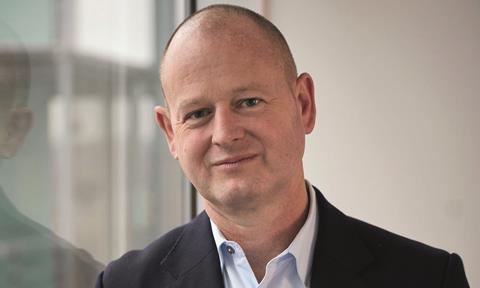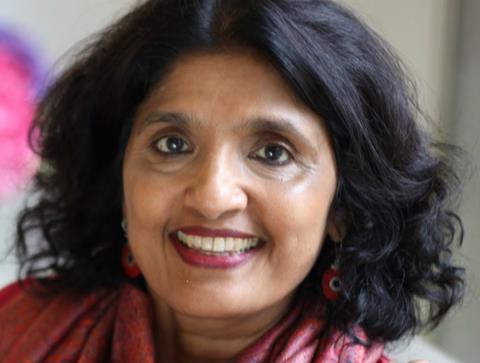Five broadcasters on board at launch, after three-year campaign
A pan-industry training levy on unscripted programming has been agreed following a three-year campaign, with the potential to generate £3m per year to plug skills shortages.
ScreenSkills has united the BBC, Channel 4, Sky, A+E Networks UK and Discovery UK, along with Pact, to invest in the fund for off screen training. All non-scripted commissions greenlit by these broadcasters will be subject to the levy from this summer, and the skills body is also in advanced discussions to bring ITV and Netflix on board.
Led by ScreenSkills chair Richard Johnston and chief exec Seetha Kumar, The Unscripted TV Skills Fund charges a levy of 0.25% of the budget of all unscripted productions (see box for full details).
The proposal was first drawn up in early 2018 but took some time to get off the ground.

Johnston told Broadcast that “meshing everyone’s agendas was one big challenges of this project”.
The pandemic then set the introduction of the scheme back by 12 months as Johnston said it didn’t feel right to launch while “everyone was watching every penny”.
By launching in June 2021, Johnston said the levy would have the best chance of engagement, given that hopefully less money will being spent on covid filming protocols.
Kumar championed Johnson’s contribution to the campaign, she said: “Richard was absolutely instrumental, we wouldn’t have gotten it over the line without him. With these things you’ve got to have the right timing and the right person.”
Secruring an intial cash boost to kick start the fund was the final piece of the puzzle, Kumar said, and the BBC and C4 have come on board as founding investors. “That upfront investment has been incredibly helpful,” Kumar said.
How the fund works
Unscripted UK productions will contribute 0.25% of the commission budget into the fund, with the contribution equally split between the broadcaster and the production company.
The broadcaster is responsible for collecting and sending the contribution to ScreenSkills on behalf of the indie.
The contributing broadcasters and producers will form a steering group that will oversee the fund’s wider strategic objectives.
Working groups made up of representatives from the production community along with ScreenSkills research will identify specific skills gaps and advise where the investment should be directed.
The working groups will recommend training programmes which will then be agreed by the council and ratified by the steering group. Individuals will apply for places on the training programmes, which will be outsourced to third party providers.
A minimum of 50% of the fund will be invested outside of London, in areas with specific skills shortages this could rise to 100%.
Out of London focus

Not only does the scheme specify that half the beneficiaries will be from the nations and regions, but the BBC and C4 have requested that 100% of their investment be made to support out of London training.
Further to this, half the membership of the council and working groups must be from the nations and regions and 50% of investment must be made to out of London training providers.
The terms of the scheme also stipulate that 50% of the beneficiaries must be from one of the protected characteristics group.
“The freelancer community has has had a torrid 12-months,” said Johnson. “This is a great example of the industry looking after our freelancers and investing in training, to make sure we have the most skilled workforce possible.”
Screen Skills estimates that the fund will generate circa £3m a year by 2024.
What the industry said
Pact chief executive John McVay: ”Indies recognise the importance of future-proofing the industry and are committed to playing their part to invest in training and to address the lack of diversity and inclusion in TV, particularly in the nations and regions.”
BBC chief content officer Charlotte Moore: “We are delighted to be a founding investor and partner in this fund – with its critical focus on strengthening skills in the nations and English regions and improving off-screen diversity. Both are really important parts of our mission to strengthen the creative economy right across the UK.”
Channel 4 managing director, nations and regions, Sinead Rocks: “We are particularly focused on addressing skills gaps in the nations and regions and believe this fund will really help support our aims.”
Sky UK managing director, content, Zai Bennett: “The freelance nature of TV production means that cross-industry schemes like this are important to support people in developing their skills and to provide new opportunities for people who are under-represented.”
General Manager UK, SVP content and creative, EMEA, A+E Networks UK, Heather Jones: “A+E Networks UK is committed to developing a diverse and inclusive workforce as well as commissioning production teams that better represent our audiences right across the UK. This is an important moment for our industry, as we strive to create a workforce in which everyone can belong and thrive.”
Executive vice president, GM UK & Nordics at Discovery, James Gibbons: “The launch of our real-life streaming service discovery+ has seen our commissioning output significantly increase and we’re more committed than ever to investing in Britain’s world-class unscripted TV professionals.”An


























No comments yet